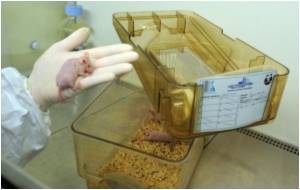
"Additional technology to efficiently convert the plant fatty acids into chemical building blocks is needed, but our research shows that high levels of the appropriate feedstock can be made in plants," he added.
The method builds on Shanklin's longstanding interest in fatty acids called omega-7 fatty acids. Discovery of the genes that code for the enzymes responsible for so called "unusual" plant oil production encouraged many researchers to explore ways of expressing these genes and producing certain desired oils in various plants.
Enzymes that make the unusual fatty acids are variants of enzymes called "desaturases," First the researchers identified naturally occurring variant desaturases with desired specificities, but they worked poorly when introduced into Arabidopsis. They next engineered a laboratory-derived variant of a natural plant enzyme that worked faster and with greater specificity than the natural enzymes.
Having tested various traits individually, the scientists then combined the most promising traits into a single new plant. The result was an accumulation of the desired omega-7 fatty acid at levels of about 71 percent in the best-engineered line of Arabidopsis.
"This proof-of-principle experiment is a successful demonstration of a general strategy for metabolically engineering the sustainable production of omega-7 fatty acids as an industrial feedstock source from plants," Shanklin said.
Advertisement
Source-ANI







